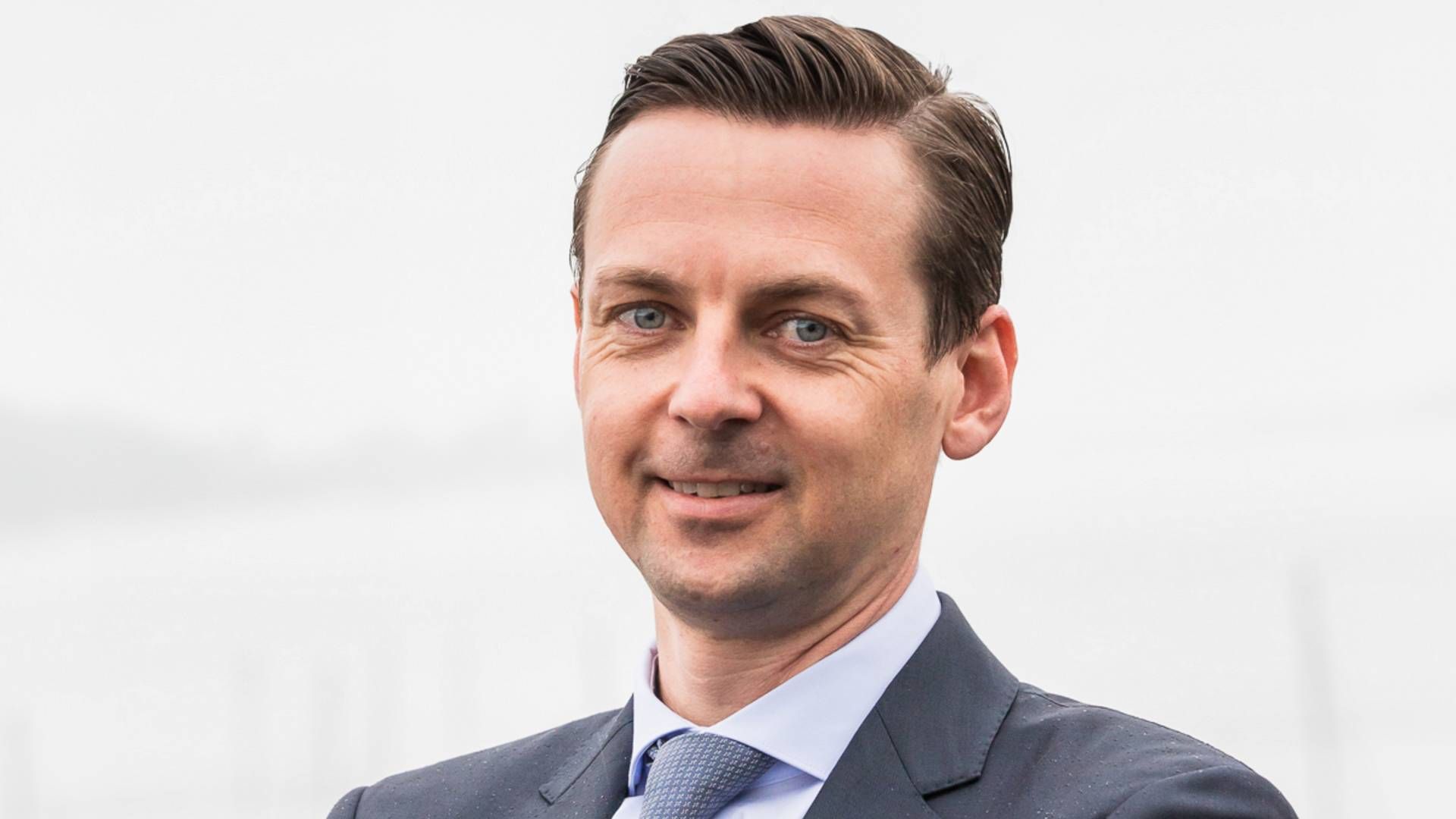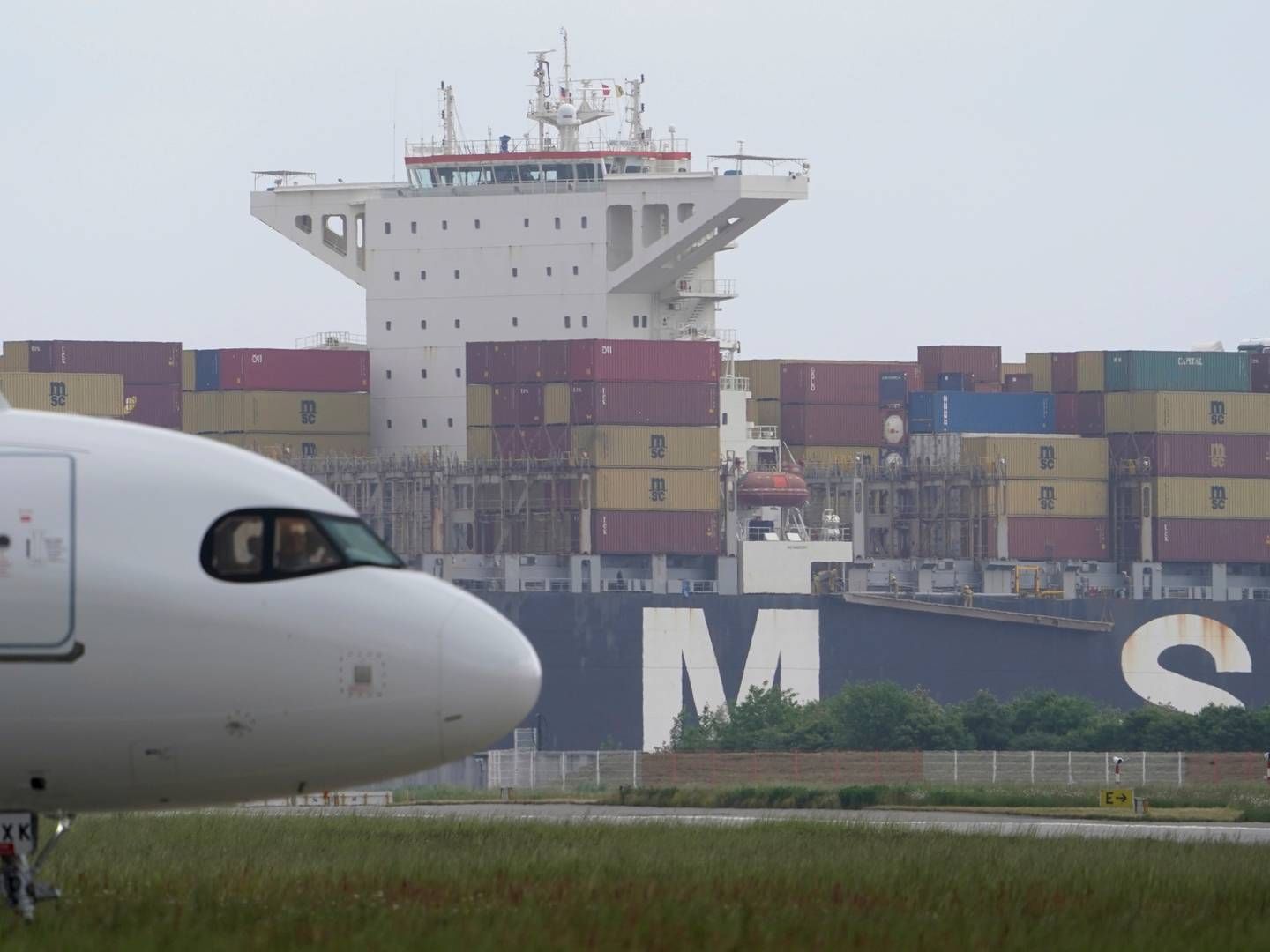Golden Ocean CEO declares support for CO2 tax: "The sooner the better"

Ulrik Andersen, CEO of dry bulk operator Golden Ocean, states that the carrier overall supports a carbon levy as a market-based measure – as long as the right conditions are in place.
Such is the chief exec’s statement to ShippingWatch at the same time as this week’s meeting unfolds in the International Maritime Organization’s (IMO) climate committee, the Marine Environment Protection Committee (MEPC), where the member nations are gathered to discuss shipping’s decarbonization – including a carbon levy as the most efficient measure.
”Generally speaking, Golden Ocean is supportive of a CO2 tax under the right conditions,” Andersen tells ShippingWatch during an interview in Oslo.
The shipping industry players differ in their belief as to whether the IMO will be able to pass a global tax on CO2.
Whereas the Nordic shipowners’ associations prior to the MEPC meeting looked positively upon the possibilities of a deal – as reported by ShippingWatch yesterday – Bimco’s Deputy Secretary General Lars Robert Pedersen believes that it may take up to ten years before the tax becomes a reality.
Several industry players such as Danish Shipping, Norwegian Shipowners’ Association and Lasse Kristoffersen – former CEO of Klaveness and current CEO of Wallenius Wilhelmsen – have all been vocal supporters of a CO2 tax. And now Golden Ocean as well.
Equal competitive conditions
Ulrik Andersen highlights that the right conditions would include that the CO2 tax scheme is enforceable and applies to everyone so the competitive conditions are the same for all.
Like many of the others in favor of a CO2 tax, the chief exec believes it is important that the money gathered from such a tax is, in large parts, channeled back into the industry in the form of support for research and development projects that can accelerate the green transition needed in the industry.
”We want to channel it back into R&D for the green transition, because that needs funding and it’s furthermore funding competences that we do not have in-house in the shipowning companies,” Andersen says, adding:
”We need people to look at all sorts of solutions to bring us down to the ultimate goal, which is zero emissions. So, on those conditions, we are very positive about a CO2-based levy.”

Critics of the IMO argue that the organization is unable to deliver a long-term solution on decarbonization, criticizing some member states for being unambitious on the green agenda. The deadlock has made the EU enter the scene to accelerate matters, launching its own measures such as the Emissions Trading System (ETS) and FuelEU Maritime.
As such, regional measures are promoted instead of global ones.
Several players, such as Harald Solberg, CEO of the Norwegian Shipowners’ Association, have said that a global tax is essential to ensure that the industry will be able to live up to the climate targets. He has previously warned against a ’regional patchwork blanket’ of regulations.
Andersen also prefers a global tax.
”Ideally you would want to have it [the CO2 tax, -ed] globally. Who that ought to manage it, I will refrain from having an opinion on that. The most important thing is that it’s transparent and enforced. However, even if we are met with regional schemes, like we will in Europe from 2024, the shipowners will manage. It will just be less efficient,” he says.
However, one thing is managing it, but the chief executive does not hide the fact that if the CO2 tax is not global and affects every shipowner, it will lead to increased costs simply ensuring compliance.
”It’d be more expensive for shipowners to ensure compliance with different schemes and regulations. It is just a lot of unnecessary bureaucracy,” the chief exec says.
Price on carbon
Another topic heavily debated when it comes to the CO2 tax is the price. How high does it need to be to ensure that the gap is closed between fossil and green fuels?
As to the specific price, Andersen is not sure whether it will be USD 200, 300, 500 or 50 per tonne CO2.
”Who knows? But it is probably more USD 200 than 50,” he estimates.
How important is it that a carbon tax comes sooner rather than later?
”The sooner the better. But even if it [the tax, -ed] doesn’t come, I am confident the shipping industry will eventually adapt – it will just take longer.”
Can the shipping industry afford that it takes longer?
”Clearly, I would rather see a solution today than tomorrow. But I am optimistic and hopeful by nature. So, even if a global CO2 tax is not introduced soon, we can still transition the industry. But obviously, the sooner the better.”
IMO’s climate committee has begun difficult discussions on CO2 reduction
Golden Ocean CEO expects to set another profit record this year




















